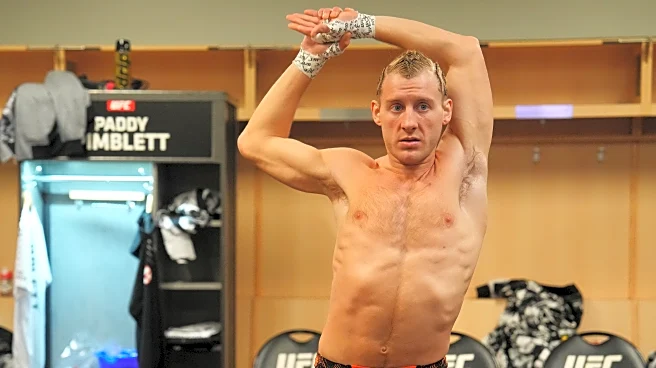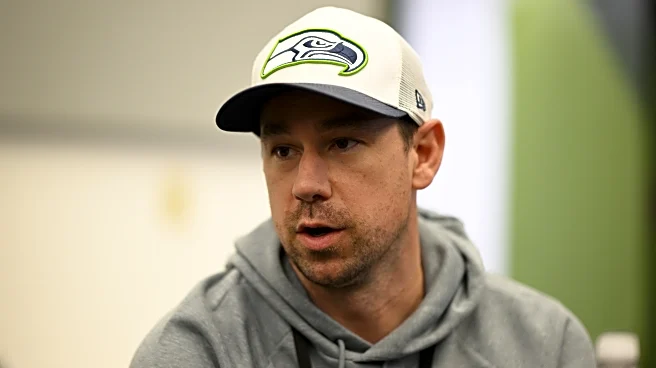What's Happening?
Abby and Brittany Hensel, known for their unique condition as conjoined twins, were recently spotted at a McDonald's with a newborn. The twins were seen enjoying a casual outing, dressed in tank tops and jean shorts, as they carried a baby carrier. They were accompanied by a friend, with whom they shared a laugh and a hug before departing in their Tesla. The sighting adds to recent public appearances where the twins have been seen engaging in everyday activities in their Minnesota town, including running errands and visiting a groomer with their labradoodle. Abby's husband, Josh Bowling, was also seen grocery shopping, further fueling speculation about the twins' new addition to their family.
Why It's Important?
The public interest in Abby and Brittany Hensel stems from their unique life as conjoined twins, which has been documented in various media over the years. Their recent appearances with a newborn have sparked curiosity and speculation about their family life. This development highlights the twins' ability to lead a normal life despite their condition, challenging societal perceptions and inspiring many. Their story continues to captivate audiences, offering insights into the dynamics of family life and personal relationships for individuals with unique physical conditions.
What's Next?
While Abby and Brittany have not publicly confirmed the identity of the newborn, their recent activities suggest a new chapter in their lives. Observers may anticipate further public appearances or statements from the twins regarding their family. The twins' continued engagement with the public could lead to more media coverage, potentially offering deeper insights into their personal lives and experiences. As they navigate this new phase, they may also become advocates for individuals with similar conditions, promoting awareness and understanding.
Beyond the Headlines
The Hensels' story raises important questions about the societal and ethical considerations surrounding conjoined twins and their ability to lead fulfilling lives. Their public presence challenges stereotypes and encourages discussions about inclusivity and acceptance. As they continue to share their journey, they may influence cultural perceptions and inspire changes in how society views and supports individuals with unique physical conditions.










